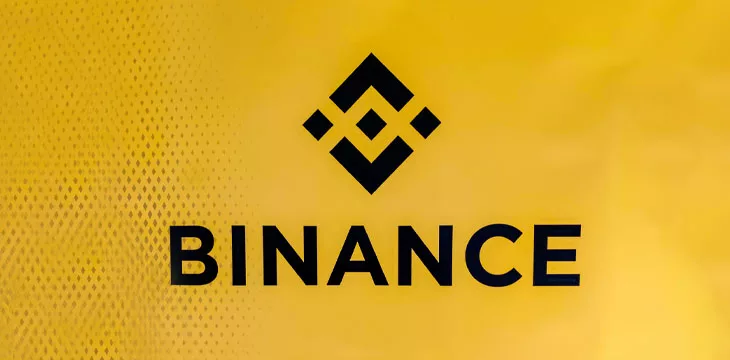|
Getting your Trinity Audio player ready...
|
New revelations of ‘crypto’ terrorist financing are posing serious problems for those trying to drag the digital asset sector out of the cold and into the mainstream.
Last week, blockchain intelligence analysts TRM Labs issued a report aimed at ‘understanding how Hamas uses crypto.’ The report followed the attack by the Palestinian terror group Hamas on Israeli civilians earlier this month that U.S. President Joe Biden called the deadliest day for Jews since the Holocaust.
TRM’s report offered a historical view of Hamas’ embrace of digital assets as a way of raising funds outside traditional finance channels. As far back as 2019, Hamas’ military wing began soliciting a significant volume of BTC donations on Telegram before carving out dedicated spaces for such pitches on its official websites. These appeals expressly stated that funds raised would be utilized to commit acts of violence against Israel.
The following year, the U.S. Department of Justice (DOJ) seized over 300 accounts and millions of dollars linked to crypto fundraising efforts by Hamas, al Qaeda, and the Islamic State of Iraq and Syria (ISIS). The DOJ took control of Hamas websites and continued to operate them covertly, allowing agents to trace the flow of funds back to their origin points.
Last week, CNN reported that the DOJ was still pursuing a criminal money laundering investigation based on information gleaned from these accounts. Arda Akartuna of United Kingdom-based blockchain analysts Elliptic told CNN that Hamas was among the “most successful initiators of crypto asset-based fundraising to date in terms of amount raised.”
Hamas announced in April that “hostile efforts” by law enforcement agencies meant it was halting its BTC fundraising efforts “out of concern about the safety of donors and to spare them any harm.” Despite that announcement, the following month saw Israeli authorities announce the seizure of 190 accounts on the Binance digital asset exchange suspected of belonging to Hamas and ISIS.
That was hardly the first time Binance has counted terrorists and their supporters among its customers. As far back as 2019, Israeli media linked Hamas funding to Binance accounts. In 2021, blockchain detectives tracked more BTC flowing from Hamas wallets to Binance.
That 2021 discovery coincided with a major Hamas fundraising effort following a new outbreak of violence between Hamas forces and the Israeli military. Hamas-controlled digital wallets received more than US$400,000 as a result of this campaign.
Looking the other way
While donations to Hamas tend to surge following outbreaks of violence, efforts by Hamas-linked entities to fundraise off the current crisis have so far proven less lucrative. Not that this has stopped Hamas from trying. Despite its earlier moratorium, Hamas followed up its recent attacks with new appeals on social media networks for donations in BTC or the USDT (Tether) stablecoin.
On October 10, Israel Police announced that the Cyber Unit of Lahav 433 (basically, Israel’s FBI) had “successfully frozen cryptocurrency accounts used by Hamas for fundraising.” The police credited assistance from the Ministry of Defense’s National Bureau for Counter Terror Financing (NBCTF), the Israel Security Agency (Shin Bet), and other national intelligence units.
To no one’s surprise, the seized Hamas accounts were on Binance, which is said to have ‘cooperated’ with Israeli authorities in locking the accounts. Binance subsequently issued a statement saying it was “working in real-time, around the clock to support efforts to combat terror financing.”
The thing is, we’ve heard that before, with little evidence that Binance is doing anything other than acting after external agencies raise a stink. Until that call comes in, the exchange appears extremely disinterested in doing anything to disrupt the lawless free-for-all going on under their noses.
In May, when those 190 terror-linked accounts were seized by Israeli authorities, Binance pleaded helplessness, claiming that “bad actors don’t register accounts under the names of their criminal enterprises.” But given recent civil suits filed against Binance by U.S. regulatory agencies—in which Binance senior staff joked about their ‘know your customer’ policies being “fo sho”—it’s not clear that Binance would do anything about terror financing even if it did know.
And make no mistake, Binance does know. In March, the civil suit filed by the U.S. Commodity Futures Trading Commission (CFTC) featured internal communications in which Binance’s then-chief compliance officer joked about identifying “HAMAS transactions” on the exchange. Despite this knowledge, there’s no evidence that Binance did absolutely anything to stop these transactions or alert the relevant authorities.
Binance is by no means the only exchange to be utilized by terror groups. Last week, the Wall Street Journal reported that Palestinian Islamic Jihad received millions of dollars via the Russia-based Garantex exchange. Like Binance, Garantex has also helped move money on behalf of state-sponsored hackers and helped Russia dodge economic sanctions.
This most recent action by Israeli authorities also saw them work with their U.K. counterparts to freeze an account at Barclays bank (NASDAQ: BCS) that Hamas was using to solicit donations. So, fiat currency’s role in terror financing isn’t necessarily getting a pass.
But Binance remains the Forrest Gump of crypto terror financing, seemingly never far from the action. So this latest connection to Hamas—and Binance’s history of enabling Iranian sanctions-dodging efforts—will only bolster the DOJ’s case against the exchange and its founder, Changpeng ‘CZ’ Zhao.
Have axe, will grind
Binance’s U.S.-facing exchange Binance.US is already struggling to keep its lights while fighting U.S. regulators in federal courts, but even worse news may be in the pipeline. The latest Hamas financing revelations have lit a fire under Washington politicians who already had little love for all things ‘crypto.’
Last Friday, Politico quoted Sen. Elizabeth Warren (D-MA) saying “the danger of crypto-financed terrorism is real and should be an urgent priority for Congress.” This summer, Warren re-introduced a bill she co-sponsored with Sen. Roger Marshall (R-KS) that would tighten anti-money laundering controls on digital asset transactions. Warren called the latest Hamas revelations “a wakeup call for lawmakers” and is lobbying other senators to support her bill.
Earlier this year, Sen. Sherrod Brown (D-OH) suggested Warren’s bill didn’t have his full support. But Brown, who chairs the Committee on Banking, Housing and Urban Affairs, issued a statement last week saying his committee plans to “examine the financing behind Hamas’s attacks, including whether cryptocurrency was involved, and what additional economic tools we need to stop state sponsors of terrorism, including Iran, from supporting Hamas and other terrorist groups.”
Over at the House of Representatives, Rep. Jim Himes (D-CT), a member of both the Financial Services and Intelligence committees, told Politico that ‘crypto’ operators need to articulate a legitimate reason for being, and they need to do it yesterday. “As long as the use case is some weird combination of libertarian fantasies and drug dealers and terrorists, members of Congress are not going to be excited to give the industry the benefit of the doubt.”
Follow CoinGeek’s Crypto Crime Cartel series, which delves into the stream of group—from BitMEX to Binance, Bitcoin.com, Blockstream, ShapeShift, Coinbase, Ripple,
Ethereum, FTX and Tether—who have co-opted the digital asset revolution and turned the industry into a minefield for naïve (and even experienced) players in the market.

 03-28-2025
03-28-2025 





